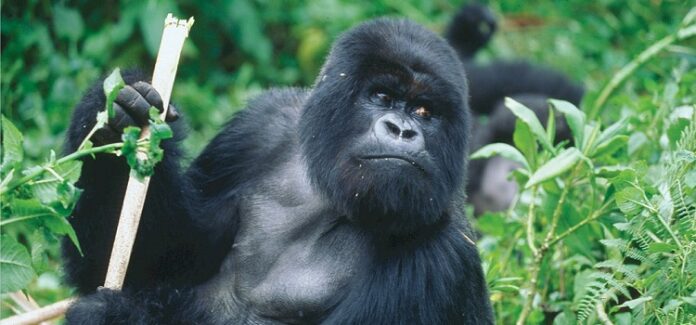A safari in Rwanda could be a once-in-a-lifetime experience, creating memories that you will cherish forever. But how do you keep such high expectations from turning your holiday planning into a nightmare of overwhelming proportions? The answer is simple: find out from people who have done it before exactly what to do and what to expect. The team at Safari Consultants are just the people to turn to.
The first thing you’ll need to decide on is when you want to go. While Rwanda is only just south of the Equator, the country is at a considerable altitude – this means that the climate is considered temperate, and the average temperatures stay in the high twenties. There are however, two rainy seasons, which are generally the least practical times to travel to Rwanda. The first and longer rainy season is from March to May, with a second shorter rainy season from late October running through November. Therefore, Safari Consultants recommend that it’s best to visit from June to early October, or during January and February.
The next decision is to decide where in Rwanda you want to go. As a general rule, the eastern parts of the country are home to the archetypal African savannah landscapes, while the western side contains many great lakes and mountainous forests. The capital city of Kigali sits in the middle of the country, and offers the most versatility in terms of accommodation and transport connections. The country isn’t particularly large, and crossing from one side of the country to the other is only a matter of around 200 miles. It’s entirely possible to choose multiple landscapes and habitats that you wish to explore, and combine them into one holiday, either by relocating from one to the other, or making Kigali a base from which to conduct various short trips.
The most popular destination in Rwanda is the Volcanoes National Park, located in the north-west on the slopes of the Virunga volcano chain. The biggest draw is the area’s wild mountain gorillas, which can only be found in this area and in one other part of the world, and are considered critically endangered. The gorillas are only able to be viewed through specially organised tours, and while expensive, these trips are often the highlight of people’s safaris in Rwanda.
Down in the south-west corner of the country, you’ll find the Nyungwe National Park, the largest mountain rainforest in Africa. It is considered the most important site for biodiversity conservation in Rwanda, and hosts hundreds of species of chimpanzees, birds, orchids and more, many of which are only found in Nyungwe. There is also East Africa’s only canopy walk, which lets you explore the forest and its inhabitants from a spectacular and unique viewpoint.
On the other side of the country, along the north-eastern border with Tanzania, there is the Akagera National Park. This is where you find the big game, and if you want to see elephants, giraffes and zebra in the wild, Akagera is the place to go. The area also contains a number of beautiful lakes, many of which offer the chance to camp and observe the wetland nature, or simply catch the golden sunset over the waters.
Once you’ve sorted out where and what you want to do, there are plenty of other things you should consider before you arrive in Rwanda. First and foremost, understand that the Rwandan genocide twenty years ago is still something the country is coming to terms with, and many of the people you will meet will have lost friends and relatives. Be tactful and respectful if the subject is raised.
In general, Rwandan society is conservative – people dress modestly and are reserved in their actions. If something isn’t as you expected, quiet persistence is the key. Smoking is not banned but nor is it welcome in restaurants. Rwanda has also become the first country in the world to ban plastic bags, so make sure you do not bring any in your luggage. When it comes to dealing with wildlife, responsible tourism needs to be encouraged, and as such the restrictions when on safari often include guidelines to make sure tourists do not interfere with the wildlife, make loud noises near the animals, or pick local flowers. When on safari with gorillas or chimpanzees, there are additional stipulations aimed at reducing stress to the animals and making sure that they aren’t exposed to any diseases – if you have a cold or flu, you will not be permitted to track with the animals.
However, with just a little preparation beforehand, the land of a thousand hills will charm you entirely, and you’ll wonder why you ever hesitated to go in the first place.

